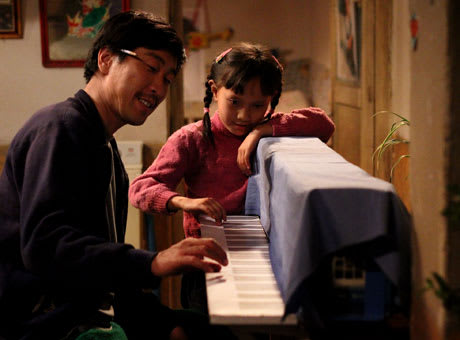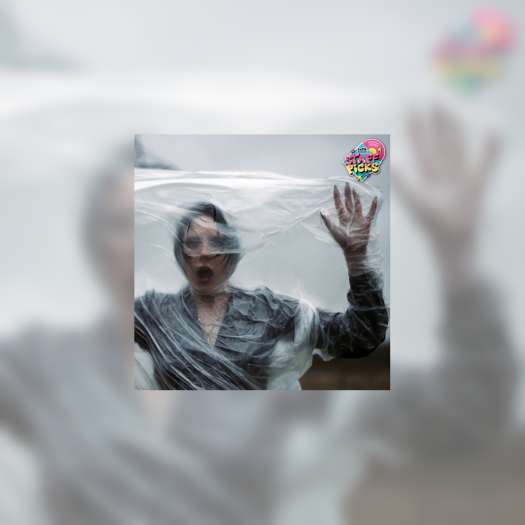Back in the early '90s, when state-owned Chinese industry imploded in the face of modernization and the lure of capitalism, the Tiananmen Square protests left China as a bit of a global pariah, facing political change, with greed and corruption rising up while industrial centres dilapidated. It's an aesthetic and ideology exaggerated and encapsulated by Zhang Meng's very playful, very self-conscious musical comedy of communist idealisation and peculiar political mirroring of the shenanigans suffered by the Soviet Union. Featuring many songs sung in Russian about the individual overcoming the severing of communal ties, The Piano in a Factory follows struggling father Chen's (Wang Qian-Yuan) efforts to get his daughter a piano to practice on at home. Noting the material lure of Chen's now affluent, estranged ex-wife to his daughter, he devises a plan to fashion a piano himself in a rundown factory with a ragtag team of unemployed social misfits. Simultaneously a love story emerges, as do many musical numbers in butcher shops and decimated factories. Because the tone of the film is akin to a hybrid of 12 Monkeys and Dancer in the Dark, with decaying landscapes and clumsy, politically motivated musical numbers meeting in a surrealist fashion, the obvious didactic of the film is easier to swallow, having a learned, cultish vibe. Unfortunately, even though these off-centre elements come off as charming, this bizarrely structured ode to finding a purpose in life when everything has been stripped away isn't nearly as memorable or moving as either 12 Monkeys or Dancer in the Dark. Instead, it plays as a passing curiosity that only works in part. Since this is a Film Movement release, a short film is included as part of the DVD. This month's title is The Necktie, which is an NFB stop-motion animated short by Jean-Francois Levesque, which similarly tackles the nature of the worker, suggesting that a life of corporate servitude leaves a person old, lonely and hollow – natch. It's the sort of message that comes from any and all undergraduate liberal arts ethos and was said better in Joe vs. the Volcano.
(Film Movement)The Piano in a Factory
Zhang Meng

BY Robert BellPublished Dec 16, 2011



